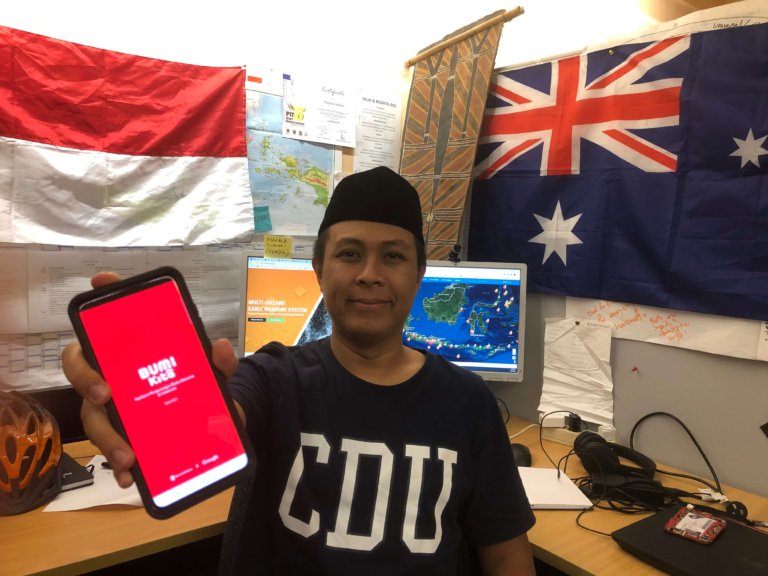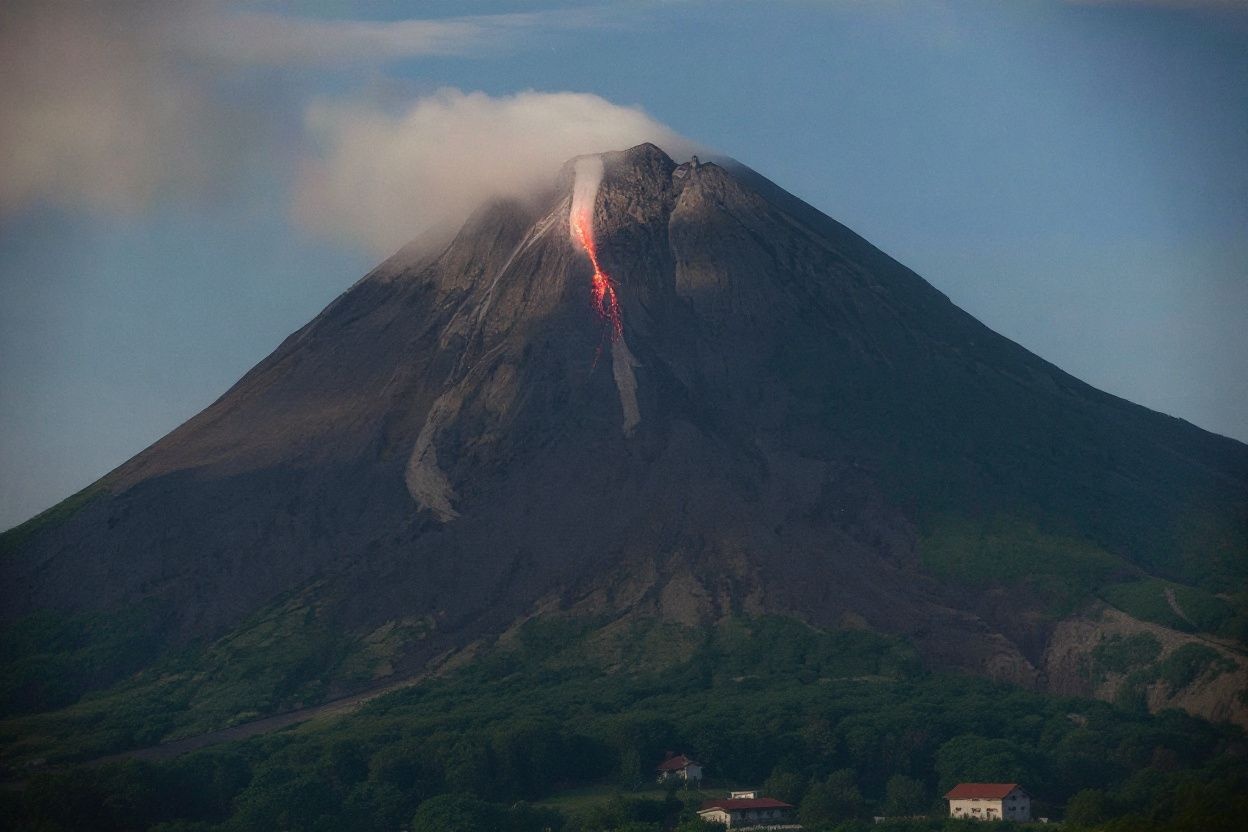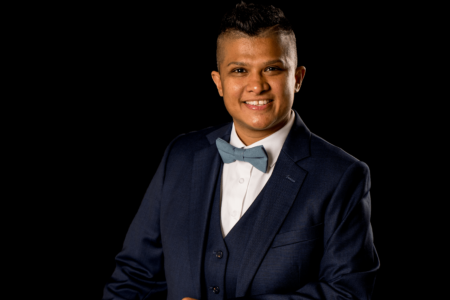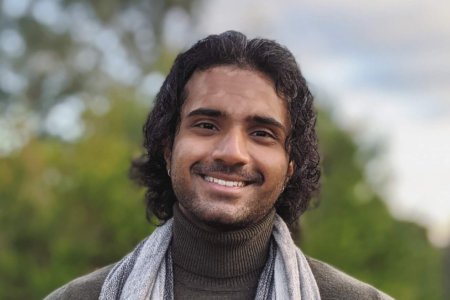
When a 6.3 magnitude earthquake hit his hometown and caused thousands of casualties, Yogyakarta native Mujiburrahman Thontowi was spurred into action. He volunteered on campus and now, 15 years later, he’s still striving to help. This time, as an academic.
After earning a bachelor’s and master’s degree in law in Indonesia, Thontowi won a scholarship to pursue his PhD in humanitarian, emergency and disaster management at Charles Darwin University, Australia.
When COVID-19 struck, it seemed nearly impossible for Thontowi to get to Charles Darwin University. That’s when he heard about the first pilot programme to charter over 60 international students into the Northern Territory. With the university’s help, he became one of the first batch of international students to travel to Australia during the height of the pandemic.
Since landing, he’s wasted no time to start his studies even when under quarantine. He even participated in international conferences on disaster risk education and sustainability through remote video calls. We caught up with him to learn more about his PhD degree, his research on multi-platform disaster warning systems, and his future plans.
What made you choose to pursue your PhD at Charles Darwin University?
I chose this uni because it has supervisors that are world-famous. Such as Associate Professor Akhilesh Surjan and Dr. Jonatan Lassa — experts in disaster management. They support my research in multi-hazard early warning systems in Indonesia.
Besides that, the location of the uni is close to Indonesia as it’s right on the border. It’s a mere two-hour flight to Bali — travelling would be less costly. Finally, I chose to study here because the campus respects the indigenous communities in Australia.
View this post on Instagram
I am currently studying at the College of Indigenous Futures, Education and Arts at Charles Darwin University. Indonesia also respects and acknowledges its indigenous communities. This uni also pushes students to publish papers in international journals, so there are many workshops to improve our academic writing skills.
Where does your love for humanity work come from? Walk us through your charity work. Do you have a personal back story behind this?
When I was in high school in 2004, one of the largest disasters hit Indonesia. It was the Indian Ocean earthquake and tsunami — it killed 200,000 people in multiple countries. At the time, I was helpless and it was all you could see on television and hear on the radio.
Two years later, during my studies at Gajah Mada University getting my Bachelor’s in Law, another large earthquake hit my hometown Yogyakarta. This caused 6,000 casualties which pushed me to do something so I became a volunteer at the campus.
 Indonesia’s most active volcano, as seen from Sleman in Yogyakarta. Thotowi’s research at Charles Darwin University focuses on multi-platform disaster warning systems. Source: Agung Supriyanto
Indonesia’s most active volcano, as seen from Sleman in Yogyakarta. Thotowi’s research at Charles Darwin University focuses on multi-platform disaster warning systems. Source: Agung Supriyanto
Fifteen years later, I am still consistently working in the humanitarian sector and pursuing a PhD in it. I am a volunteer at heart and the salary is just a bonus for me. I love working in this field and I love helping others.
Do you think it would have made a difference if you studied for your PhD at a local institution?
If I had studied in Indonesia for my PhD, I would have chosen the University of Indonesia in Jakarta to focus on law — disaster law in particular. The difference would have been that I would also be working as the humanitarian coordinator in Save the Children Indonesia as well.
In Indonesia, I have always balanced working and studying. During my bachelor of law studies, I worked at the International Federation Red Cross and Red Crescent Societies as a Programme Officer. When I continued my Master of Law at the University of Diponegoro in Java, I was the Consultant for the Japan International Cooperation Agency.
Now, I am grateful that I have a scholarship from the Indonesian government called LPDP (Indonesian Endowment Funds for Education) under the Ministry of Finance. As a full-time PhD student, this allows me to fully focus on my research and study all day. I don’t have to find a job because the living allowance is enough for me to focus on my research and cover my daily expenses.
What has been your most memorable class so far?
Doing a PhD means you have no classes, instead you jump right into making research proposals, confirmation of candidature, ethics approval, field research, write-ups, examination, revision and graduation. There are some small workshops, like the Research Enhancement Programme, where you can meet up with other PhD students.
I guess one of my most memorable moments is meeting up with other researchers from all over the world. During these workshops, I get to meet friends and drink coffee while discussing our research topics. Building and fostering these networks is very important to me.
Do your lecturers or mentors at your uni support you?
My principal supervisor is very supportive of me during the entire process. Sometimes I would feel like I was depressed or at a dead end because doing a PhD can be hard and lonely. My supervisors would cheer me up, like a father figure or a friend would. They provide not only advice for my studies, but life lessons that I will cherish well beyond my PhD life.
What are the practical learning elements in your PhD?
Risk communication is a very important part of my research. The ability to help the public understand the risks that are surrounding them is essential. What are the dangers and hazards near their house, school or workplace?
View this post on Instagram
There are many research articles in international journals that discuss the multiple hazards in Indonesia and there is a much needed effort to translate this academic paper to make it more people-friendly. With a simple infographic post on social media or even via a short video, you can help easily explain hazards and how to act when there is a warning.
What are your academic goals with your PhD?
My ultimate academic goal is to write in an international journal — the only thing left to do in my last year of my PhD. So far, I have improved my research and public speaking skills by joining various international conferences in Japan, Indonesia and Australia as a speaker.
I love to travel but due to COVID-19, all international travel has been restricted and unfortunately I have only been able to speak online at these conferences.
What do you plan to do with your degree after graduating?
After my studies, I want to return to Indonesia and share my knowledge and skills from my research so the community can benefit. In the distant future, I may continue a postdoc in Japan or Germany as they have the best tech for early warning systems. But for now, I’m focused on completing my thesis.
Tell us about the Young Scientist Award for your research about disaster risk.
In 2018, I was nominated by my principal supervisor to join this award. After the evaluation by the Integrated Research on Disaster Risk (IRDR) Young Scientists Programme Panel, I became one of the 44 young researchers from 24 countries who were proposed as IRDR Young Scientists.
Can you tell us more about your current research in creating a warning system back in Indonesia?
Currently, Indonesia has many types of single hazard early warning systems — tsunami, volcano, fire hotspot monitoring, flood and landslide warning systems. Most of these are centralised in the capital city.
My research tries to unify all the different ones into one warning platform — the Multi-Hazard Early Warning System (MHEWS). Considering that Indonesia has gone through a rapid decentralisation process from a national to local government, they need to learn how to use the MHEWS.
In my research, I had an interview through Save the Children Indonesia where we developed a mobile app that tries to solve the issue of multiple hazards under one single platform. This was a project funded by Google called Bumi Kita and is available on the Play Store.
Last year, I spoke at an international conference on International Technology in Disaster Risk Reduction in Bulgaria and presented my app. I hope to make the app usable for English speakers as it is in Indonesian at the moment and also for it to be on the IOS App Store as it’s only available for Android.
What’s one thing from home and how do you substitute it?
I miss my family, especially my wife and kids — two sons and one daughter. I video call them every day because the COVID-19 pandemic has made it difficult to meet them as borders are closed.
The last time I saw them was November last year when there was a chartered Charles Darwin University flight from Singapore to Darwin with only 63 international students on board. I don’t know when the international borders will open, but I really do miss them. However, it’s good I have friends in Darwin who treat me like family and vice versa, as we’re all stuck here together.










